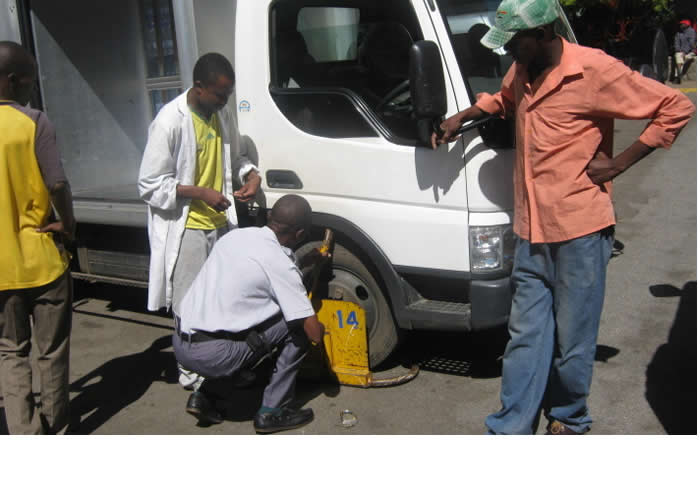EDITORIAL COMMENT: Follow best practice to ease parking woes

PARKING in big cities is a problem the world over, and a plethora of solutions have been put forward and implemented to ration parking, discourage people from driving into the most congested areas, and stop people clogging roads with badly parked cars.Harare is not exempted from the problems, although the wider streets, the requirement by town planners for the past 20 years that all new buildings in the city centre must have on-site parking for those working in the buildings, and now a policed parking policy have all helped.
But most people are going to have to accept that they cannot park outside their place of work and that even shoppers and visitors to the city centre may have to walk a few blocks.
Even on the busiest working days, or the most vibrant month-end Saturday mornings, parking is not that difficult to find. What is almost impossible is to find parking close to First Street, close to a bank and outside any of the larger supermarkets. But anyone prepared to walk a few blocks can find parking without too much trouble. The problem is not so much a lack of parking but a poor distribution of available parking where demand is high.
Some motorists have been complaining long and loud about the new high fines for illegal parking. Well no one is forcing them to break the law. We do not think the fines are there to raise money. They are there to deter people from parking illegally. In every parking system there is a level of fine or other action that stops illegal parking. In Harare if the fine was US$5 a lot of people might double park; if the fine was confiscation of the vehicle without compensation no one would double park, or park where parking was not permitted. Somewhere between those extremes is a fine that will deter almost everyone except the very rich, and for these people clamping and the resulting delays act as a greater deterrent. There is no reason to block traffic.
But the council now needs to adjust its parking policy, and spend the money it makes from parking according to a well designed plan. At one time all parking fees, minus the administration expenses of collection and enforcement, were placed in a separate account that was used to expand parking. The two municipal parking garages, and the three upgraded car parks were all paid out of the accumulated coins placed in parking meters and the fees charged as each parkade and car-park was commissioned.
The same should be done now. Those casual charges of US$1 an hour must produce a profit. The young men and women hired to collect the fees are not overpaid by any means. The much lower contract fees in the parkades and car parks are probably closer to the break-even point. So we need to know what is happening to these parking profits. They should be going towards the next batch of parking garages. Plans for a huge multi-storey bus terminus, parkade and shopping centre on the double block east of Fourth Street and used for parking and buses now, have been in the offing for decades. Several thousand cars can be parked in a suitable parkade erected on that site.
At the same time the council needs to use parking charges to ease congestion where it is worst and help ration desirable parking more actively. We see no problem with even higher charges within a block of First Street or along the “bankers’ alley” in Samora Machel Avenue.
But in return we want to see lower charges as we move away from the most congested points, and lower casual fees in parkades and car-parks.
We continually note that giving the same value to a parking bay on the corner of First Street and Samora Machel Avenue, and one in the southern industrial part of Rezende Street South does not make sense. One bay is more valuable than the other and charges should reflect this fact. If there was a variable charge, depending on position, those who could park more cheaply elsewhere would do so, easing congestion for those who really do need the valuable bays, usually for a short time.
In most cities off-street parking is cheaper than on-street parking, part of a policy to keep as many cars off the streets as possible. Harare needs to follow that rule. Parkades should simply cover their maintenance and administrative costs, rather than make money. Street parking in desirable areas should be where the council makes money to build more parkades. Parking is not insoluble. Problems can be minimised.
Harare needs to follow best practices developed around the world, from Beijing to New York.








Comments